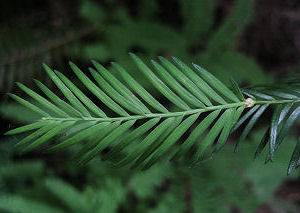
Needles: The needles are flat and lie flat on the twig like grand fir. But unlike Grand Fir, they point forward at an angle. They are dark green on top with white lines underneath.

Cones: The small, egg-shaped cones look like miniature giant sequoia cones. They are hard and woody with scales that look like lips.
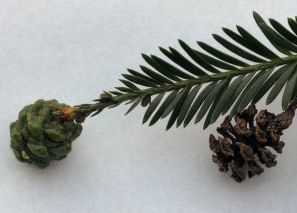
Bark: The reddish-brown bark is thick with deep furrows and has a ragged look. It's quite soft to the touch, especially when wet.
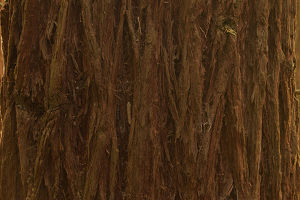
Where it grows: In Oregon, redwoods grow only on the extreme southern coast near Brookings. The northern-most sites are in two groves along the Chetco River. Redwoods extend to the central California coast and typically range to 1000 ft. elevation, occasionally to 3000 ft.
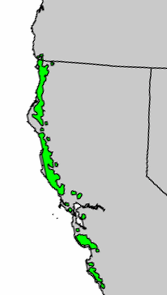
Uses: The wood is light, strong, and resists decay. Its beauty and color make it a favorite for siding, decking, fencing, and lawn furniture.
Names: Sequioa is named after Squoyah, a member of the Cherokee tribe, who created a writing system for the Cherokee language. Sempervirens means evergreen. Other common names: Coast Redwood, California Redwood.
The iconic Redwood has a reputation for grandeur that is well-deserved. The world's tallest tree is a 379 ft. Redwood named Hyperion, discovered in 2006 in Redwood National Park. Redwoods reach maturity at 500 years. The oldest is over 2500 years old.
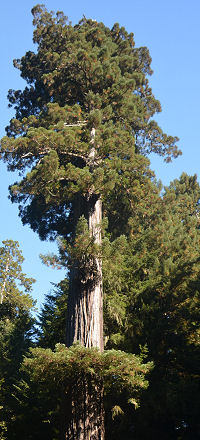
© 2012 Ken Denniston